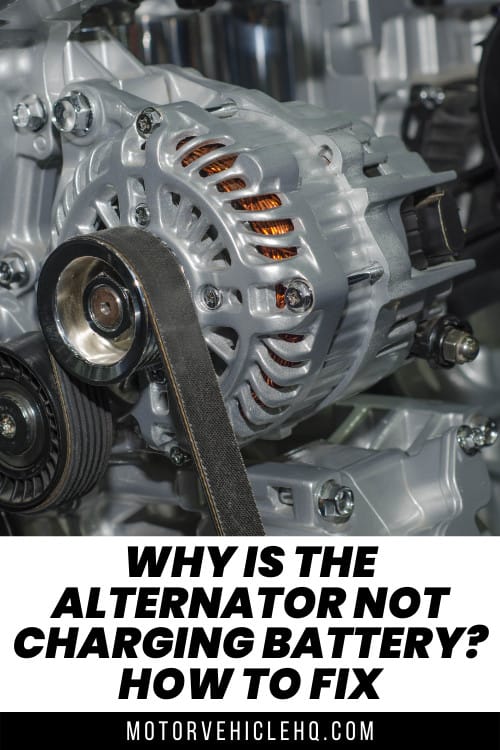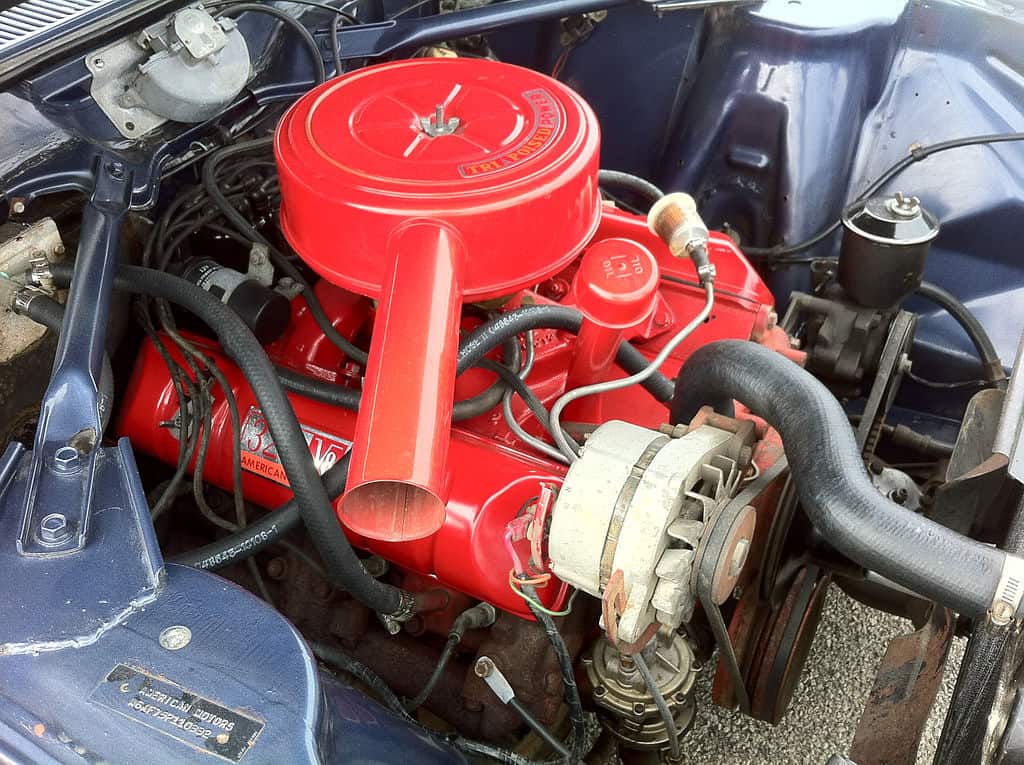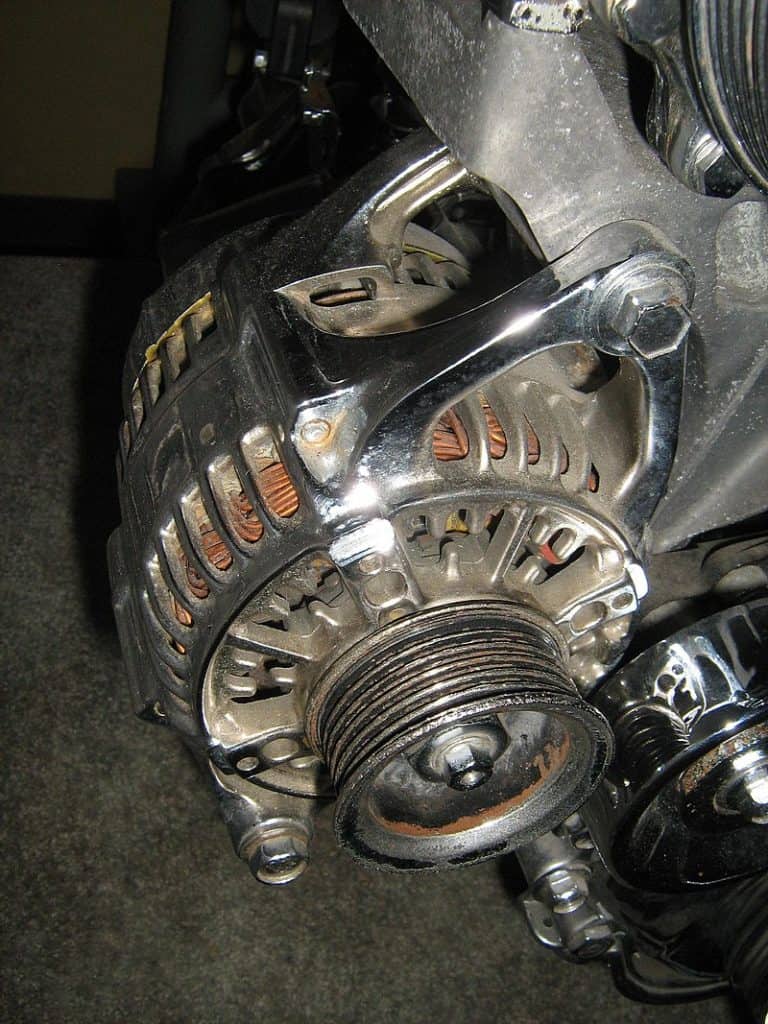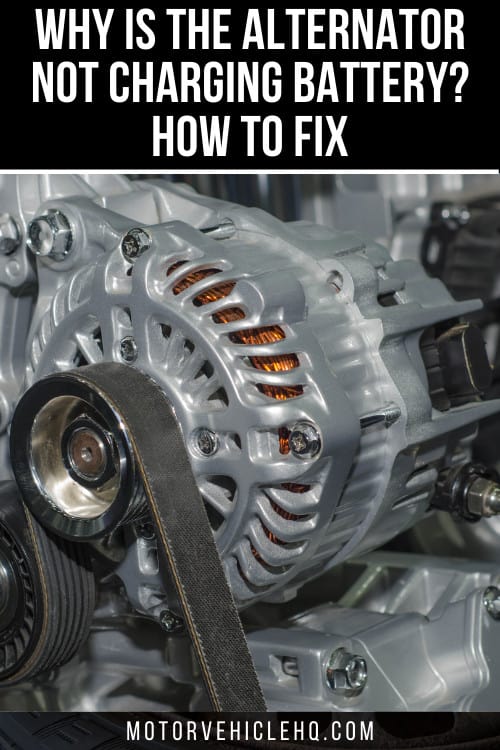Do you have an alternator installed in your car? However, why is the alternator not charging battery? You paid a lot of money for an alternator that doesn’t function, and now you’re in an unpleasant scenario where your battery is still empty.
The alternator could be acceptable in this case, but your automobile still might have a different issue. What is it, then? Let’s investigate.
In internal combustion engines, the battery must be charged. Automobile batteries typically only have one purpose: to start the car. They dislike having their charge constantly depleted. While operating your automobile, the alternator is responsible for continually charging your battery to its maximum capacity.
It may be challenging to start your car if the battery is low on charge or has an improper voltage. This is because starting your automobile requires 12V of power. If you want to start your automobile without any problems, a decent battery should always contain between 12 and 13.5 volts of energy.
However, if you experience the alternator not charging battery, you might run into trouble. We are going to assist you because of this.
We will discover what a car alternator is and how it functions in this post. The likely causes of the alternator not charging battery will next be covered. After that, we’ll talk about potential fixes for this issue. Now let’s talk without any further hullabaloo.
Why Do We Need Alternators In Cars?
The part of your car that generates power is the alternator. So why is that? Isn’t it the car’s battery that generates electricity?
No, it isn’t; the battery is the part that stores the power, whereas the alternator is the one that generates it. To provide you a charge while the automobile is not operating, the alternator essentially recharges the battery. You cannot recharge the battery without the alternator.
The alternator generates electricity like a generator. So how does the generator get its power? It is easy to describe how it produces power. The auxiliary belt, often known as the serpentine belt, is used to link the alternator. When the engine starts, this belt begins to rotate.
The alternator is also powered by the belt’s rotation. This rotational energy is transformed into electricity by the alternator.
When there is a power demand, this electricity is sent to your battery and then distributed. the radio, the dome lights, and the clusters, as examples. The energy produced inside the generator powers all of these components.
Since the battery has a significant quantity of energy stored in it, the battery can power these components on its own. However, this energy is limited, and the engine, as well as accessories, will stop whenever the battery goes out of power. That is why you should fix your alternator if it is damaged.
Why then does the alternator fail? We’ll discuss it next, though. Next, we’ll talk about the reasons why an alternator could stop charging the battery. Since many owners have installed alternators yet their alternators are malfunctioning.
How Can I Determine Alternator Not Charging Battery Scenarios?
Using the battery as well as the charging system tester, the mechanic can assess the condition of the alternator charging system.
If you have an automotive body shop do this battery as well as charging system examination, referred to as an AVR test, the cost might be between $30 and $50.
The test can identify whether your charging system has been malfunctioning or operating at a reduced capacity, in which case the alternator is unable to supply adequate charge.
Whether the charging system failed the test, the mechanic must conduct more tests to determine whether the alternator is the cause of the problem and when another mechanism is to blame.
Other charging issues might be caused by a broken drive belt or an ignition switch that isn’t working properly. If the drive belt isn’t functioning, the alternator won’t be operating correctly and won’t be able to supply a charge.
Your mechanic’s shop can do a voltage test when the charge system tester is not available. To do this, the mechanic must first check your battery voltage when the engine is off, and then again with it running.
Once the engine is running and the alternator is supplying electricity to the engine, your battery voltage should theoretically increase. The charging mechanism isn’t operating to its full potential if your battery voltage doesn’t rise.
What are the Warning Signs That Your Alternator is Not Charging Battery?
To correctly identify which component of your charging system or alternator has to be replaced, there are a few typical indications as well as symptoms that you should keep an eye out for.
Dashboard Lighting for Batteries
The most frequent and visible indication that there is indeed a problem with the car’s charging system would be that a unique icon will illuminate on your dashboard, often in the form of a warning light in the shape of a battery.
You could also notice the phrase “CHARGE” when operating your car. This warning light typically illuminates when the ignition is turned on and goes off when the engine gets started. If it stays illuminated, your charging system is malfunctioning, and your alternator may not be charging.
The presence of the charging system indicator in your car doesn’t necessarily indicate that your alternator has failed, but rather that the charging system, in general, is having problems. Your mechanic, however, would be able to identify precisely which component is the source of the charging issues.
Cut-away of an alternator by Piero / CC BY-SA 3.0
Varying Brightness for the Headlights and Dashboard Lights
When your car is idle, the dashboard lights and headlights may dim; but, when you rev the engine, they will brighten. This is another indication that the alternator is not charging. This indicates that you might have a subpar alternator or a shoddy battery terminal connection.
A weak drive belt and that is what powers the alternator itself, is another possibility. The alternator won’t charge if the driving belt is defective or loose.
Loud Sounds
In some vehicles, the alternator bearing may be noisy and make loud noises when operating. Belt or pulley issues are typically to blame for loud alternator noises.
The belt and pulley may potentially be out of alignment, which would prevent them from operating properly and cooperating. You have to replace your alternator if the noise persists after the belt has been changed.
Additionally, a broken rotor shaft, rectifiers, slip rings, or brushes might be to blame for alternator noise. To identify which of these components is causing the noise, make careful to check each one of them.
You must purchase a replacement after figuring out where the sound is coming from as well as which component is broken.
Chronic Battery Issues
In many of your car’s electrical components, the battery is essential. While your automobile is operating, this procedure is still in progress. You may have trouble starting your car if your battery charge gets low and is not being replaced.
The battery is often the problem when your car’s electrical system is acting up. To get the alternator back to running and charging, you must make sure that your battery is in good condition.
Engine Cranks Slowly
Whenever the alternator is broken and not functioning properly, the engine of the automobile may crank extremely slowly and occasionally come to a complete stop.
Before concluding that the alternator is to blame, you should examine the ignition system to determine whether this is the issue. A damaged drive belt may be the cause of the difficulty to crank as well as loud noises emanating from beneath the hood of the car.
A Leak in the Alternator Voltage
A significant portion of converting currents from the alternator into the direct current is played by the alternator. Dimming lights might result from the alternator’s diodes wearing out over time.
To check for leakages, we advise using a voltmeter. Your alternator will resume charging once the diodes are repaired.
Reasons Why Your Alternator is Not Charging Battery
Your alternator not charging battery might be caused by a few key factors most of the time. To pinpoint why your alternator isn’t charging and why the engine isn’t operating smoothly, it’s critical to identify the most prevalent causes of the charging system in your car not functioning.
Ineffective or Damaged Alternator
Your alternator not charging is most frequently caused by a damaged alternator. A multimeter may be used to determine if the alternator is damaged.
For testing the levels and figuring out if your alternator is broken, you must cautiously tap your alternator using a hammer while the engine is running. Typically, an alternator has to be replaced after 7 years or 80,000 miles.
The Older-Than-Expected Battery
Unfortunately, batteries don’t last forever. Depending on how frequently, how far, and in what environment you reside, a car battery can last anywhere from 2 to 5 years on average.
Batteries typically have a greater lifespan in colder climates and a shorter lifespan in warmer climates. Your battery may not be able to last much longer, which might be the cause of your alternator not charging.
Defective Belt
If you look closely at the radiator system, you’ll notice several pulleys and belts that cooperate to swiftly transform mechanical energy into electrical energy, which powers the alternator.
If your belt degrades over time, the alternator won’t be able to charge your vehicle. Fortunately, changing the damaged belt is simple and may restore charging to your alternator quickly.
Damaged Pulley
The damaged belt is accompanied by a broken pulley. The mechanism that transforms energy into the alternator includes pulleys and belts.
After a given length of use, a pulley may break, sometimes without anyone’s fault, but most often due to deterioration over time.
If this happens, the alternator won’t be able to give the battery the charge it needs.
Damaged or Broken Fuse
Fuses may sustain damage as a result of a power surge or from chronic use that causes them to wear out. If this occurs, the alternator may no longer receive current, which would prohibit it from charging.
Some automobiles don’t have an alternator, which relies on the fuse to function properly. Make sure to read your car’s owner’s handbook to find out if your car has this particular alternator and fuse setup.
Wiring Problems
An alternator needs the right quantity of electricity to charge and run, which is produced by several wire systems.
Power will stop being generated and go to the alternator if one wire is broken or unplugged.
As a result, the battery cannot be charged by the alternator. The only solution is to identify the broken wire and replace or fix it.
An Engine Control Module (ECM) or On-Board Computer Bug
Modern electronics are installed in newer, more advanced vehicles. Nearly every electrical component of the automobile is under the supervision of the engine control unit, or ECU.
The alternator will cease to charge and generate power when there are problems with the engine control unit.
A Defective Battery
The alternator and battery function as a team that must cooperate for the automobile to function properly as a whole. At least five years of dependable use from a battery is required before it starts to malfunction.
The alternator won’t be able to produce any power if the battery is dead. With an average lifespan of 7 years, an alternator normally has a longer lifespan than a battery.
Should My Alternator Be Replaced or Rebuilt?
An alternator’s replacement cost will be substantially more than its rebuild. Replacing will set you back between $430 and $860, making it a pricey repair.
It is advised to change the drive belt as well while replacing the alternator. The drive belt won’t significantly increase your expenses, but it will enable you to save money by reducing labor costs.
Even though it takes longer and involves more labor, rebuilding an alternator is significantly less expensive. The only significant expense you’ll incur is the removal and installation, which will run you between $80-$130.
Even after including in the $90-$160 builder’s charge, this still works out to be hundreds less than repairing an alternator.
Even if it takes a lot of time, you might choose to repair an alternator by yourself at home. Although it takes time, making this choice on your own will only cost you less than $60.
How Do You Fix Alternator Not Charging Battery Issues?
Diagnosing the issue is the only method to address the alternator not charging battery issue. Therefore, you need a multimeter gadget that can measure electric current to diagnose.
You must inspect the alternator, the battery, and the fuse box for any burned fuses. Additionally, the wiring that connects the alternator and battery
The best thing you can do initially is to use a multimeter to test the battery and alternator. If neither of the components appears to be defective, you should take your automobile to a car electrician and let him take care of the situation.
In only a few minutes, a skilled technician might identify a problem. On the other hand, a novice technician will take years to identify the issue, and even then, it might not be the best course of action.
You should thus take your automobile to a shop with skilled specialists who can handle this problem swiftly yet reasonably.
How Do You Further Diagnose an Alternator Not Charging Battery?
- To verify the operation of your alternator, you can follow a few simple procedures.
- While the engine is running, gently tap the alternator with a hammer; if the charging returns to normal, the carbon brushes within are worn out and require replacement.
- Examine the huge power connection going to the alternator as well as the nearby battery’s typically massive 40-60 amp fuse.
- Between the engine and the body, inspect the ground cable.
- Verify the alternator is rotating along with the engine and that the serpentine belt is in place.
- Examine the charging light wire and the little power supply wire. You can measure it with a multimeter, but to do it correctly you might need a wiring diagram and some knowledge of auto electronics.
- To make sure they are not harmed, you can measure the voltage regulator and the diode assembly. Alternators can be used to replace them, although they are often priced similarly nowadays. What you decide is more worthwhile is entirely up to you.
Conclusion
This article has covered a lot of ground. We spoke about what an alternator is and how it functions. The causes of an alternator not charging battery issue have all been discussed.
Both spilled oil and water have the potential to harm an alternator’s internal components. Alternately, the cabling from the alternator to the battery may be defective.
As we previously indicated, other possibilities included blown fuses and parasitic loss from a few of your car’s components. Additionally, there’s a good chance that your battery is defective.
The battery should be tested to see whether it is in excellent condition. Knowing this will allow you to test other components to see whether they work correctly and ensure that the battery is in excellent condition.
But because it’s such a delicate task, it calls for a lot of accuracies. The best course of action is to find an electrician who can make a diagnosis for you. Although the cost will be high, you can be confident that there won’t be any complications down the road.


Jim Wicks is the founder of MotorVehicleHQ. With over two decades of experience in the automotive industry and a degree in Automotive Technology, Jim is a certified car expert who has worked in various roles ranging from a mechanic, car dealership manager, to a racing car driver. He has owned more than 20 cars over the past 15 years. Ask him about any vehicle you see on the road and he can tell you the make, model and year. He loves the aesthetics of all things cars, and keeps his vehicles in pristine condition.
In his free time, Jim enjoys getting his hands dirty under the hood of a classic car or taking long drives along the country roads. His favorite car? A 1967 Shelby GT500, a true classic that, according to Jim, “represents the pure essence of American muscle.”





